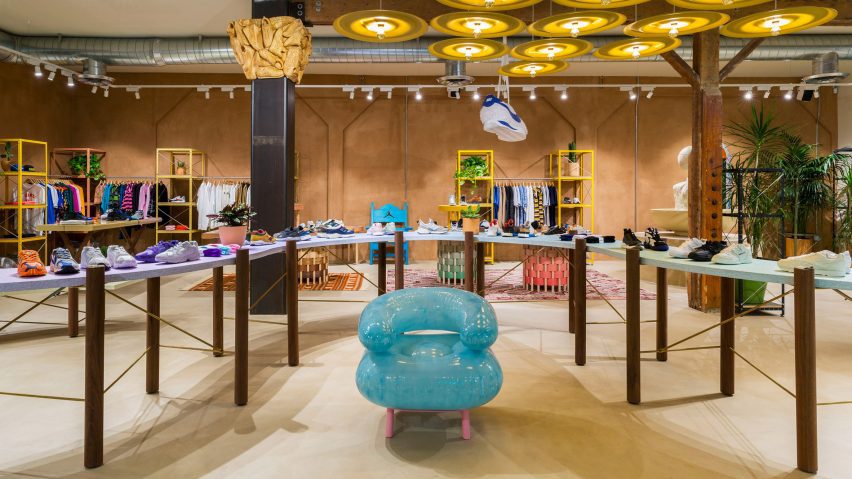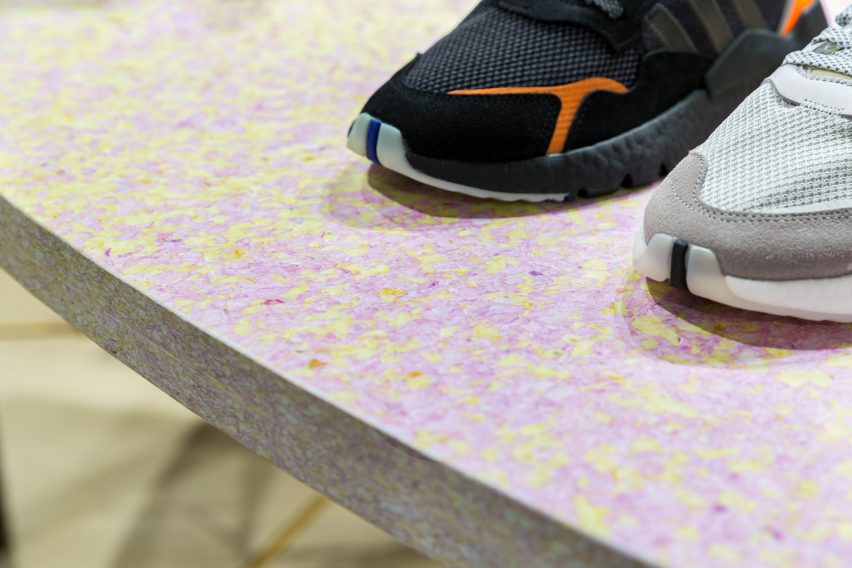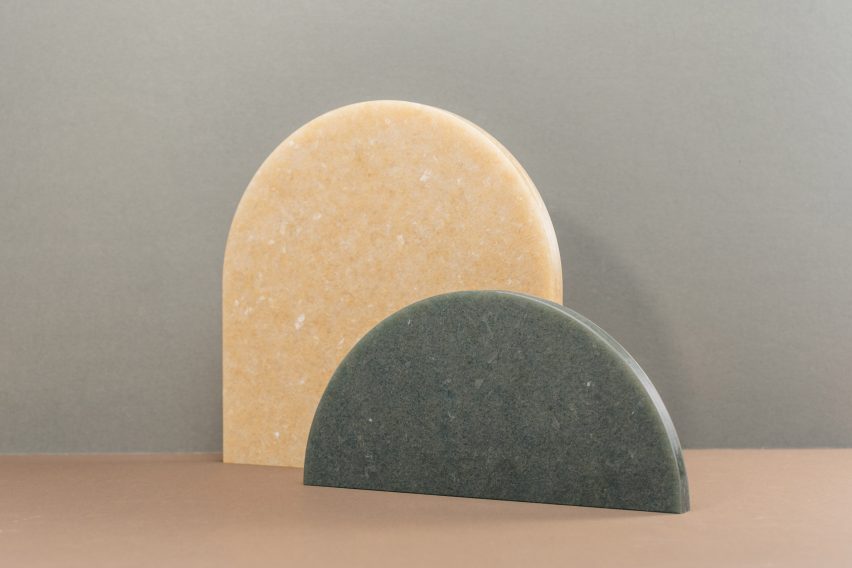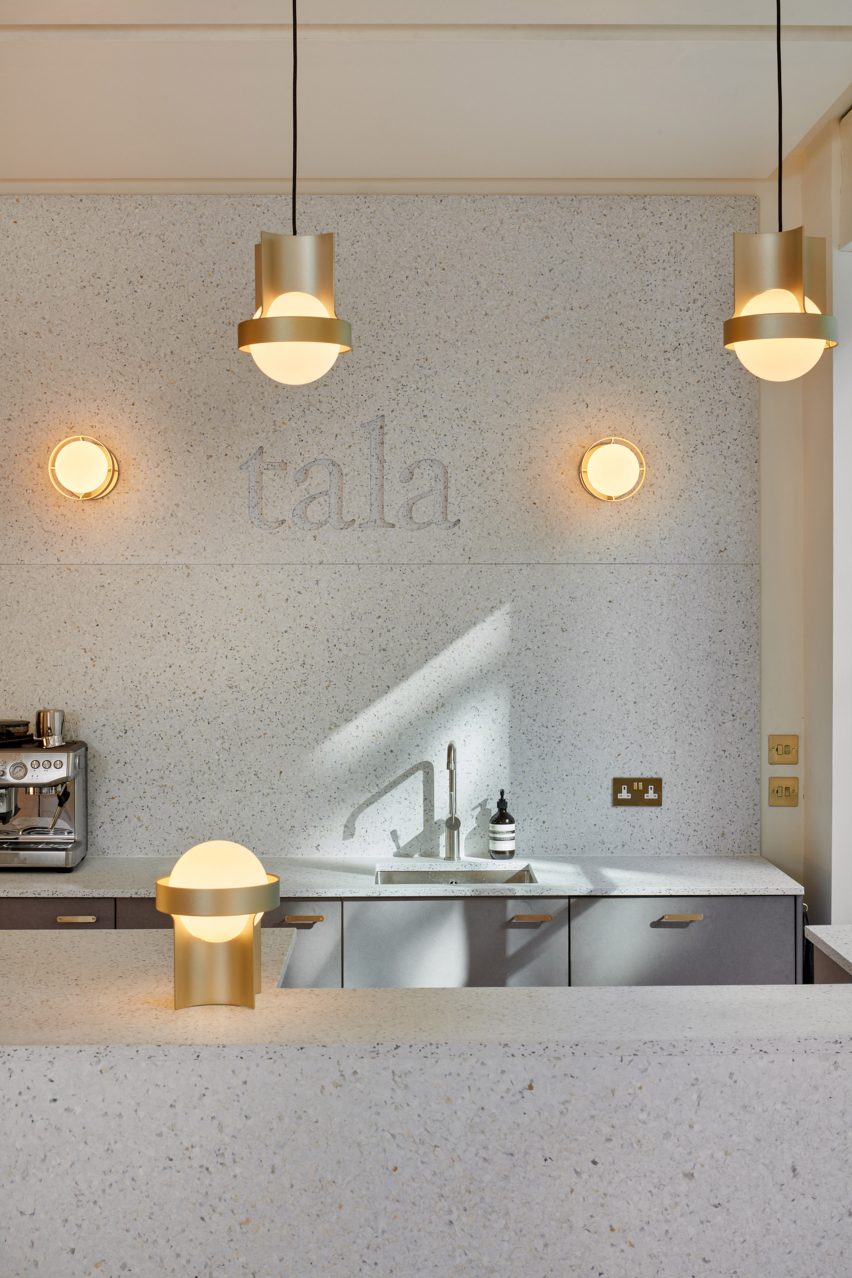
"We have a duty to honour plastics" says Smile Plastics co-founder Rosalie McMillan
Promotion: plastic can remain a useful material long into the future with a thoughtful approach, argues Smile Plastics co-founder Rosalie McMillan.
Smile Plastics, based in Wales, manufactures interior panels entirely from waste plastic for brands that include Ganni, Selfridges and Lush.
Founded during the 1990s by engineer Colin Williamson and designer Jane Atfield, the company considers itself a pioneer of the circular economy.

Along with fellow designer Adam Fairweather, Rosalie McMillan revived the brand in 2014 after it had lain dormant following Williamson's retirement in 2010.
Together, McMillan and Fairweather have sought to show that plastic can be compatible with circular principles as they have scaled up Smile Plastics' operations.
"Plastics have some amazing properties that can be harnessed through thoughtful design," said McMillan.
"Plastic itself is not inherently the issue, in our view – rather, it's the linear production model and the lack of cost-efficient waste management systems and infrastructure that are problematic, as well as our poor relationship with the material."

Around 400 million tonnes of virgin plastic is produced around the world each year, with less than 10 per cent of it recycled.
Smile Plastics' products intentionally bear remnants of their materials' previous lives – be that a barcode or a glimpse of foil from a yoghurt pot.
Its manufacturing process involves granules of recycled plastic laid out by hand before being mechanically pressed, giving its panels a dappled finish.

At the Smile Plastics manufacturing facility in Swansea, plastic sheets can be produced 24/7 – with up to 300 panels of 3 metres by 1.2 metres turned out each week, diverting as much as 3,000 tonnes of plastic waste a year.
The panels are mostly used in retail interiors but have also found their way into hospitality, residential, workplace and exhibition projects, as well as being used in some furniture designs.
All Smile Plastics' collections are limited-edition, since material is carefully selected from pre- and post-consumer plastic waste sourced from trusted suppliers to ensure the final product does not contain harmful gasses or chemicals – which can be an issue with other recycled plastics.
"Essentially, plastics need to be treated with care to preserve their recyclability and to ensure that they are not thermally degraded or unsafe to use," explained Fairweather.
As part of its focus on circularity, the company also tries to ensure that its products are easy to recycle.
It repurposes offcuts and runs a buy-back scheme that sees second-hand Smile Plastics products converted back into material to be used in new panels.

"Any Smile Plastics product can be recycled locally or, as part of our buy-back scheme, returned to us to be remade as panels all over again in an infinite loop," said McMillan.
Another common issue for recycled plastic is that the recycling process can be highly energy intensive.
But Smile Plastics states that its low-temperature production process uses 70 per cent less energy than traditional plastics recycling.

"This is important not only from a carbon perspective but also when looking at continued circularity of the material," said Fairweather.
"We operate to minimise the denaturing of the plastics through our recycling processes and can therefore support the circularity of our plastics for more iterations than standard recycling."
Smile Plastics argues that its approach demonstrates how plastic can continue to be used without costing the Earth.

"Though we acknowledge there is work to be done to make plastic a circular material on a mass scale, we're dedicated to supporting what we feel is its rightful place in the built environment's future," said McMillan.
"We want to see an end to single-use plastic and the global adoption of a circular ecosystem in which all our existing plastic can be infinitely recycled and 'waste', as we know it, ceases to exist," she added.
"If we have all depended on plastics in the past and continue to depend on them today, then we also have a duty to honour the material into our future lives and design it appropriately into the built environment in a circular way."
To order a sample from Smile Plastics, click here.
Partnership content
This article was written by Dezeen for Smile Plastics as part of a partnership. Find out more about Dezeen partnership content here.